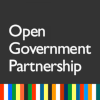Everything You Need to Know About the 51 New Open Government Country Plans in 2016
¿Quieres leer este blog en español?
At the heart of a government’s participation in the Open Government PartnershipThe Open Government Partnership (OGP) is a multi-stakeholder initiative focused on improving government transparency, ensuring opportunities for citizen participation in public matters, and strengthen... More is a biannual action planAction plans are at the core of a government’s participation in OGP. They are the product of a co-creation process in which government and civil society jointly develop commitments to open governmen..., outlining reforms to make the country more transparent, accountable and encourage citizen participationAccording to OGP’s Articles of Governance, citizen participation occurs when “governments seek to mobilize citizens to engage in public debate, provide input, and make contributions that lead to m... More. Civil society involvement in co-creating these plans is required by OGP, with national consultations starting early in the new year. The plans are mostly due by June 30th, 2016, meaning that by the time OGP celebrates its 5th anniversary at the United Nations in September hundreds of new reform commitments will have been made. These commitments could become a blueprint for renewing democracy in over a quarter of the world’s countries.
In the OGP Support Unit, our job is to support governments and civil society organizations around the world to make these plans more ambitious, to ensure they are tackling major policy challenges – not just easy fixes – and to encourage learning and exchange. This is a golden opportunity for people inside and outside government to be involved in developing strong open government commitments. It’s a process that will only work with the passion and commitment of people who are invested in their country context – so this is a call to get involved. Here are some ideas to get started and all the contact information you need:
- If you work in government and have ideas of policy reforms to encourage more openness you should get in touch with your national OGP coordinator to talk about how to include a commitment in the new plan. The Support Unit can connect you to the coordinator if needed.
- This is a major advocacy opportunity for civil society activists working on open government. You should make sure you are in touch with the government OGP coordinator in your country and know the timeline for action plan development.
- International NGOs and coalitions such as Publish What You Pay, Oxfam or TransparencyAccording to OGP’s Articles of Governance, transparency occurs when “government-held information (including on activities and decisions) is open, comprehensive, timely, freely available to the pub... More International should use the country calendars to identify when and how your advocacy priorities can be delivered in OGP countries.
- Other multistakeholder initiatives such as the Open ContractingA transparent procurement process, known as open contracting, increases competition, improves public service delivery, and ensures governments better value for their money. Technical specifications: C... More Partnership, Extractive Industry Transparency Initiative or International AidMore and better information about aid helps partner countries and donor institutions plan and manage aid resources more effectively, parliaments and civil society to hold governments accountable for t... Transparency Initiative should ensure that your partners are using OGP national action plans to make progress on your goals.
- Government “Sherpas” involved in the new Global Goals, the G20, the UN Convention Against Corruption, and other multilateral processes should see the plans as space for implementing communiques and high-level commitments at the country-level.
- Foundations and funders working on open government should ensure your grantees and partners are aware of the opportunity these action plans offer for their work.
The countries with action plans due by June 30, 2016 are:
1. Albania
2. Armenia
3. Australia
4. Bosnia and Herzegovina
5. Brazil
6. Bulgaria
7. Canada
8. Cape Verde
9. Chile
10. Cote d’Ivoire
11. Croatia
12. Czech Republic
13. Denmark
14. Dominican Republic
15. El Salvador
16. Estonia
17. Georgia
18. Greece
19. Guatemala
20. Honduras
21. Indonesia
22. Ireland
23. Italy
24. Jordan
25. Kenya
26. Lithuania
27. Macedonia
28. Malawi
29. Mexico
30. Moldova
31. Mongolia
32. Netherlands
33. New Zealand
34. Norway
35. Papua New Guinea
36. Paraguay
37. Romania
38. Serbia
39. Sierra Leone
40. South Africa
41. South Korea
42. Spain
43. Sri Lanka
44. Sweden
45. Tanzania
46. Trinidad and Tobago
47. Tunisia
48. Turkey
49. Ukraine
50. United Kingdom
51. Uruguay
